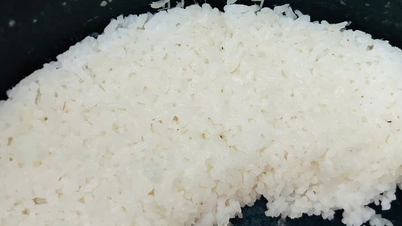Cinnamon is obtained from the inner bark of trees of the Cinnamomum genus. When peeled off, this bark curls up as it dries and forms cinnamon sticks. These cinnamon sticks can be chewed, brewed into tea, or ground into a powder to sprinkle on food, according to USA Today .
Another little-known benefit is cinnamon's ability to extend the shelf life of foods due to its natural antioxidant properties.

Cinnamon can be chewed, brewed into tea, or ground into powder to sprinkle on foods.
Photo: AI
Health benefits of cinnamon
Besides enhancing the flavor of dishes, cinnamon also contains many nutrients that are beneficial to the body such as carbohydrates, fiber, protein, calcium, iron, magnesium, potassium, vitamins A and K.
These ingredients help provide energy, aid digestion, maintain muscle, and improve overall health.
One of the notable effects of cinnamon is its ability to aid in blood sugar control.
Erin Palinski-Wade, a nutritionist in the US, said cinnamon can improve insulin sensitivity, helping to regulate blood sugar levels.
Just half a teaspoon of cinnamon a day can have a significant effect in stabilizing blood sugar, especially helpful for people at risk of type 2 diabetes.
According to Ms. Palinski-Wade, cinnamon is also often used as a substitute for sugar in dishes because of its natural sweetness, helping to create flavor without increasing calories.
Not stopping there, cinnamon is also a source of antioxidants such as polyphenols, which help protect the body from free radicals and oxidative stress.
Ms. Jen Messer, a nutritionist in the US, added that cinnamon can help reduce inflammation, helping to limit chronic diseases such as heart disease and cancer.
In addition, cinnamon also helps reduce bad LDL cholesterol, supports reducing bloating, indigestion and can contribute to protecting nerve cells, reducing the risk of degenerative brain diseases such as Alzheimer's.

Cinnamon may be effective in stabilizing blood sugar.
Photo: AI
Notes when using cinnamon
However, although cinnamon has health benefits, overuse will have the opposite effect. Consuming too much cinnamon can cause allergic reactions ranging from mild to severe.
There is no official limit on cinnamon dosage, but according to Messer, most people can take about a teaspoon of cinnamon per day.
Research from the US Department of Agriculture also confirms that taking half a teaspoon a day is safe and has no side effects.
Cassia cinnamon contains a compound called coumarin, which can cause liver damage if taken in high doses over a long period of time, according to Messer.
Therefore, controlling the dosage and choosing the right type of cinnamon is essential to make the most of the health benefits this spice offers.
Source: https://thanhnien.vn/que-tot-cho-suc-khoe-the-nao-185250716165406819.htm





![[Photo] Cat Ba - Green island paradise](/_next/image?url=https%3A%2F%2Fvphoto.vietnam.vn%2Fthumb%2F1200x675%2Fvietnam%2Fresource%2FIMAGE%2F2025%2F12%2F04%2F1764821844074_ndo_br_1-dcbthienduongxanh638-jpg.webp&w=3840&q=75)























































![[VIMC 40 days of lightning speed] Da Nang Port: Unity - Lightning speed - Breakthrough to the finish line](https://vphoto.vietnam.vn/thumb/402x226/vietnam/resource/IMAGE/2025/12/04/1764833540882_cdn_4-12-25.jpeg)













































Comment (0)